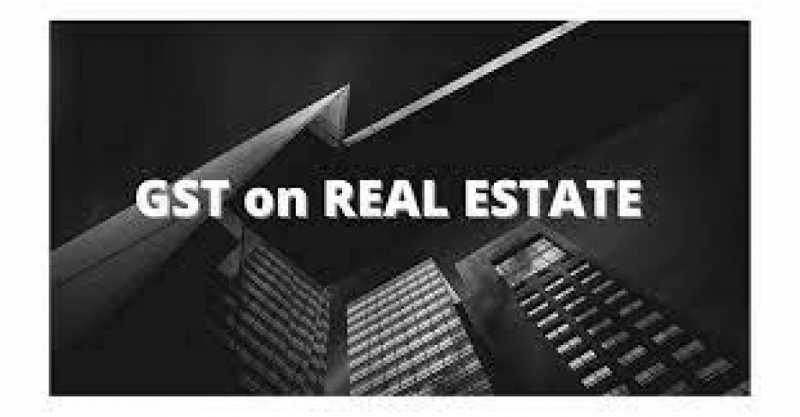- Dec 10, 2024
-
Introduction:
GST—three letters that have transformed the way taxes work in India. When it comes to buying a home, understanding how the Goods and Services Tax (GST) applies to residential property purchases is crucial. Does it increase costs? Are there exemptions? How does it affect under-construction properties versus ready-to-move homes?
This article dives deep into the nuances of GST on residential properties. We’ll break down the applicable rates, when and where GST applies, and its impact on property prices. If you're planning to buy your dream home, this guide will help you navigate the GST landscape with ease.
GST on Residential Property Purchase: Understanding and Impact
Buying a home is a dream for many, but it comes with its share of financial considerations. One of the key elements that affect property costs in India is the Goods and Services Tax (GST). Whether you're buying an under-construction property, a ready-to-move-in home, or a resale property, understanding GST's implications is essential.
This article breaks down everything you need to know about GST on residential property purchases, including rates, exemptions, and how it impacts property prices. Let’s get started!
What Is GST and How Does It Apply to Residential Property?
The Goods and Services Tax (GST) is a unified indirect tax that replaced multiple taxes like VAT, service tax, and excise duty in 2017. It applies to the supply of goods and services, including real estate, to simplify and standardize the taxation system across the country.
When Does GST Apply to Residential Property?
GST is applicable to:
- Under-Construction Properties: Homes that are being built or have not received a completion certificate from the local authority.
- Construction Services: Contracts for building or renovating residential properties.
GST does NOT apply to:
- Ready-to-Move-In Properties: Homes with a completion certificate or occupancy certificate.
- Resale Properties: Homes being sold by individual owners rather than developers.
This distinction is crucial for buyers since GST can significantly impact the cost of under-construction properties.
Current GST Rates for Residential Properties
As of now, the GST rates for residential property purchases are:
- Affordable Housing
- GST Rate: 1% (without input tax credit)
- Applicable to residential properties costing up to ₹45 lakh, with a carpet area of up to 60 sq. meters in metro cities and 90 sq. meters in non-metro cities.
- Non-Affordable Housing
- GST Rate: 5% (without input tax credit)
- Applicable to properties that do not fall under the affordable housing category.
What About Input Tax Credit (ITC)?
Under the current GST structure, ITC (a benefit where developers can claim credit for the taxes paid on inputs) is no longer available to developers for residential properties. While this simplified the taxation process, it has also led to some increase in property prices, as developers can’t pass on ITC savings to buyers.
Impact of GST on Residential Property Costs
1. For Under-Construction Properties
Under-construction properties attract GST, which directly adds to the buyer's costs. For instance, if you purchase a home costing ₹50 lakh:
- For non-affordable housing, the GST would be 5%, adding ₹2.5 lakh to the total price.
- For affordable housing, the GST would be 1%, adding ₹50,000 to the total price.
2. For Ready-to-Move-In and Resale Properties
No GST is charged on these properties, making them comparatively more attractive for budget-conscious buyers. However, these homes often come with higher base prices, which can offset the benefit of no GST.
3. For Developers
Developers face higher costs for materials and services (which attract GST) but cannot claim input tax credit. As a result, they may pass on this increased cost to buyers.
Key Exemptions and Special Provisions
- Affordable Housing Incentive: The government’s push for affordable housing has significantly reduced GST rates in this segment to 1%.
- PMAY (Pradhan Mantri Awas Yojana): Homes purchased under the PMAY scheme attract lower or zero GST, depending on the category.
- Joint Development Agreements (JDAs): GST applies to developers in JDAs for the construction of residential units but may be deferred until the completion certificate is issued.
Pros and Cons of GST on Residential Properties
Pros
- Simplified Taxation: GST replaces multiple indirect taxes, making the process easier to understand.
- Transparency: Buyers know exactly how much tax they’re paying without hidden charges.
- Encourages Affordable Housing: Lower GST rates incentivize affordable housing projects.
Cons
- Higher Costs for Buyers: GST increases the overall cost of under-construction properties.
- No Input Tax Credit: Developers cannot pass ITC benefits to buyers, leading to higher prices.
- Limited Applicability: GST is only charged on certain types of transactions, creating disparity in the market.
Tips for Homebuyers to Minimize Costs
- Opt for Ready-to-Move-In Properties: Avoid paying GST by choosing completed projects with a completion certificate.
- Consider Affordable Housing: Properties under ₹45 lakh attract only 1% GST, significantly reducing your tax burden.
- Check Government Schemes: Explore subsidies and exemptions under schemes like PMAY to save on GST.
- Negotiate with Developers: Some developers may absorb GST or offer discounts to offset the tax impact.
FAQs on GST and Residential Property
1. Do I need to pay GST on a resale property?
No, GST does not apply to resale properties as these are treated as secondary market transactions.
2. What qualifies as affordable housing under GST?
Affordable housing includes homes costing up to ₹45 lakh and meeting the carpet area criteria (60 sq. meters in metros and 90 sq. meters in non-metros).
3. Can developers charge GST after issuing a completion certificate?
No, GST cannot be charged for properties with a valid completion certificate.
4. Does GST apply to home loan EMI payments?
No, GST is not applicable on home loan EMIs. It only applies to the purchase of certain properties.
5. Is GST included in the property’s final price?
Typically, developers mention the GST component separately. Always clarify with the seller to avoid hidden costs.
Final Thoughts
GST on residential property purchases has simplified taxation but also brought additional costs for homebuyers, especially for under-construction properties. Understanding when GST applies and exploring options like affordable housing or ready-to-move-in homes can help you make an informed decision.
If you’re in the market for a new home, remember to factor GST into your budget, compare options, and explore concessions to minimize its impact. With the right planning, you can navigate the GST maze and move closer to owning your dream home!
Image source: timesproperty.com



Comments :
Currently, there are no comments in this post. Be the first person to comment on this post.